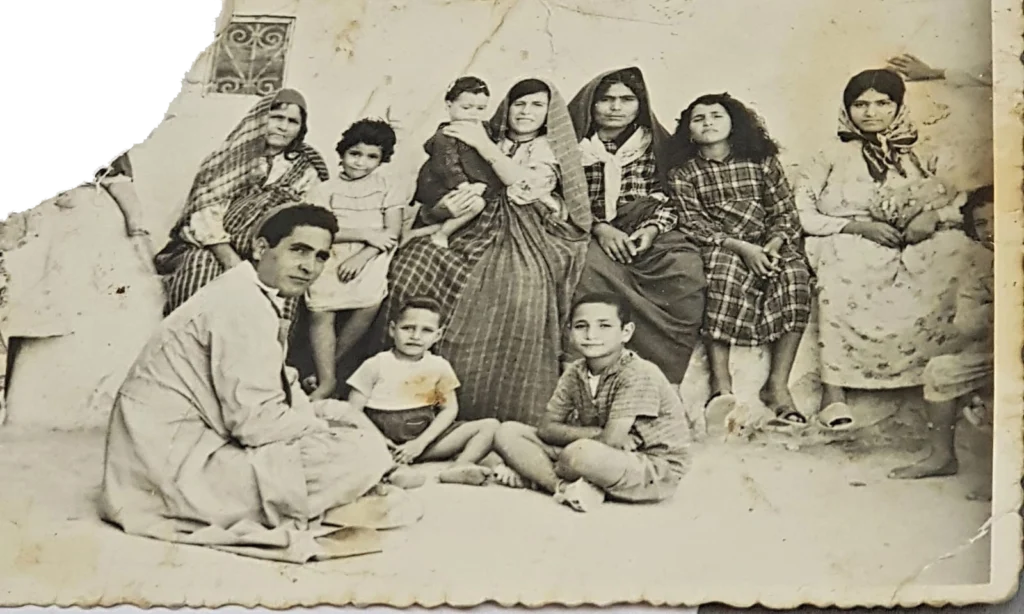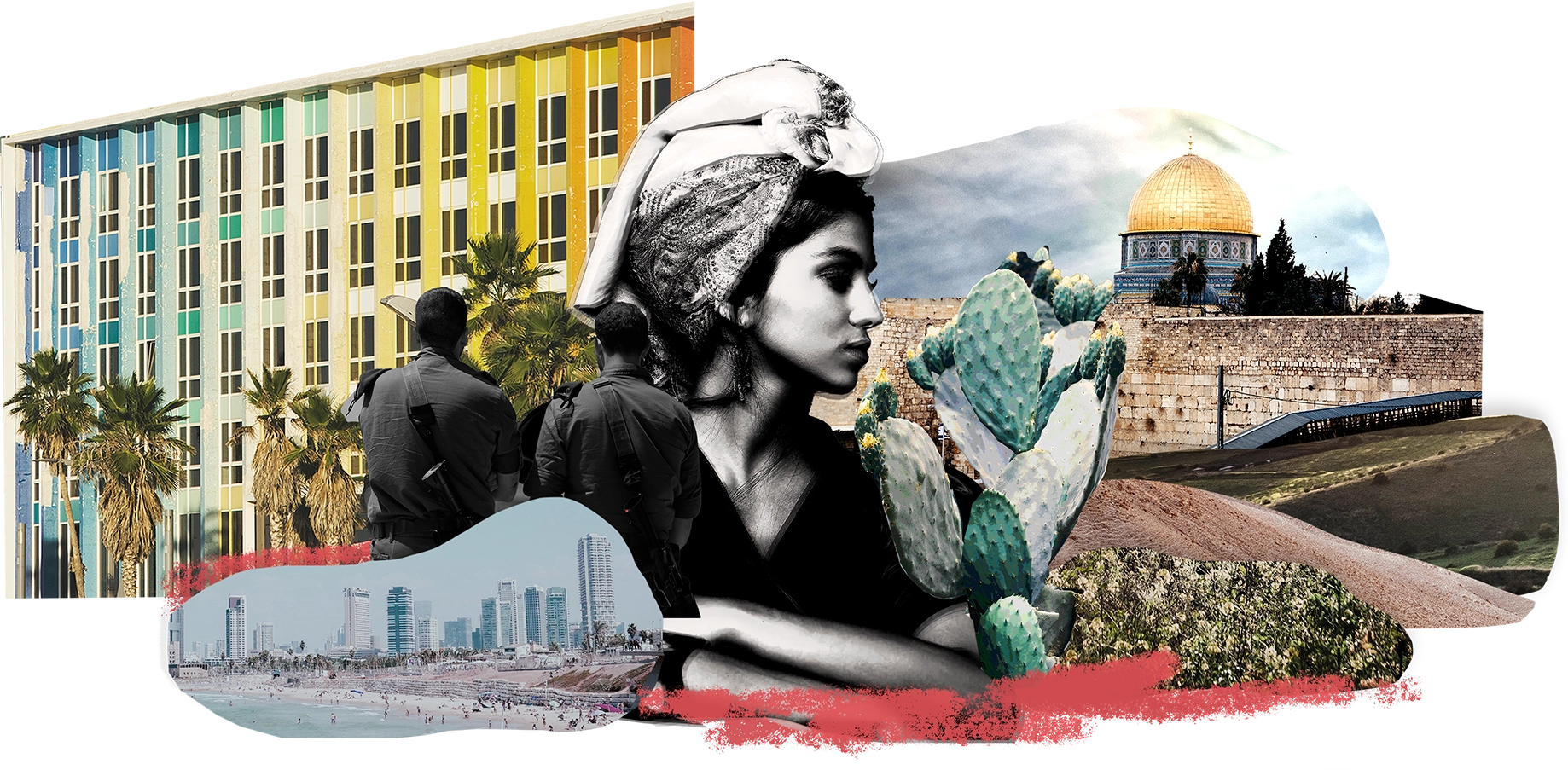“Unity for Israel” is very close to my heart. I was born and raised in Israel and have lived there most of my life. My paternal grandparents escaped religious persecution in Libya and began their life in Israel in the “Maabarot” (refugee absorption camps established in Israel in the 1950s), and my maternal grandparents left Tunisia on a small boat with their six children to pursue the Zionist dream of returning to Erez Israel. For Sephardi and Mizrahi communities, Israel is not just home, it is a living tapestry where ancestral traditions, history, and evolving identities intertwine.

The Hadad family in Djerba, Tunisia featuring Sapir Taib’s grandparents, great-grandparents, aunts and uncles.
For over 3,000 years, Jews worldwide have directed their prayers toward Israel. It was — and remains — the only country in the world that provides Jews with refuge, no questions asked. Between 1948 and 1972, close to 800,000 Sephardi and Mizrahi Jews arrived in Israel after leaving behind their homelands, many having been stripped of their possessions, their properties confiscated by the very governments they once called their own. This massive migration not only shaped the demographic landscape of Israel, wherein today over half the nation’s Jewish population is of Sephardi/Mizrahi descent, but also profoundly enriched Israel’s cultural and political fabric.
In this issue of Distinctions, we seek to provide a better understanding of the State of Israel from the perspective of Sephardi and Mizrahi communities. Throughout history, these communities have shaped Israeli society with their resilience, perspectives and experiences, yet their voices often remain underrepresented in mainstream discourse on the Jewish State’s challenges and triumphs.
We feature prominent Sephardi and Mizrahi voices, including David Suissa, who reflects on the ancient ideal of humility as pivotal for understanding unity, and Sergio DellaPergola, one of Israel’s most respected demographers. Ophir Toubul, one of the leading Mesorti-Mizrahi voices in Israel, brings forth that community’s unique perspective and its call for unity.
We also hear from Gila Green and Cindy Seni, two Canadian Jews of different generations whose divergent stories of making aliyah possess remarkably similar hopes for integrating successfully into Israeli society. Tying together our hopes for “unity,” Sarah Sassoon guides us on a tour of Sephardi and Mizrahi poets whose songs, stretching across centuries, bridge the concepts of exile and return.
I believe that unity doesn’t necessitate uniformity. It simply asks for mutual respect, understanding and genuine acceptance of our diverse backgrounds and beliefs. As the great Talmudist Rabbi Yitzhak Alfasi said some 1,000 years ago: “The embrace of Israel is like the embrace of a mother, where every Jew, regardless of their background, finds solace and love.”
Distinctions’ “Unity for Israel” issue is dedicated to the more than 1,400 men, women and children who were brutally murdered in the attack on Israel by Hamas terrorists on October 7, 2023. Jewish people around the world grieve — in unity — and admire all Israelis as they stand resilient against adversity. Am Yisrael Chai!



